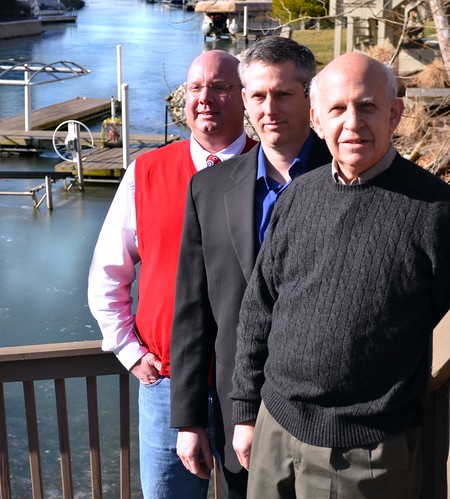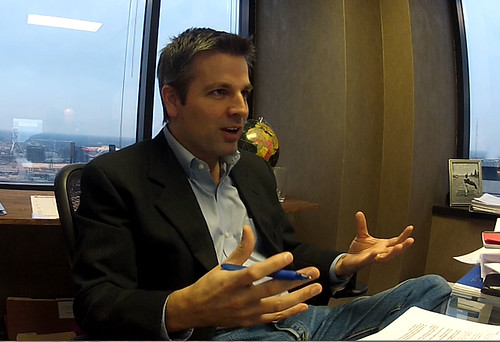
In 1990, the Town of Fishers was an exit off of I-69 with a McDonalds, gas station, and only 7,200 residents. According to 2010 census data, the town has grown to 76,794 residents, nearly 10 times the size in just 20 years. In the Indianapolis metro area, Fishers is second in size only to the City of Carmel which has 79,191 residents.
With this in mind, a group of Fishers residents thinks that it’s time for Fishers to change from a town form of government to a city. Spearheaded by Geist resident Joe Weingarten, “City Yes” collected 1,700 signed petitions asking the Town of Fishers to put the question on the ballot in the form of a referendum last Fall. Petitions were filed in May of 2010, and three days later the Fishers Town Council announced they were going to reorganize, buying them six months to propose an alternative plan.
During that time, the Town of Fishers commissioned an independent study group to look at ways to consolidate local government and possibly reorganize. In December 2010, the Town Council proposed and adopted their reorganization plan, which on the surface seemed like a step in the right direction. However, buried in the details of the plan were some changes that take away the rights of voters to elect their own city mayor and appoints the current town council members as the city’s first council members.
Some Fishers residents are crying foul.
Weingarten, along with fellow Fishers residents Mike Kole and Glenn Brown, took their grievances to the Indiana Supreme Court. Local Geist resident Steve Greisemer, an attorney with Lewis & Kappes, PC, is representing the residents of Fishers.

“We would be perfectly fine with the reorganization plan,” said Greisemer, “if we only had the voting rights that came along with being a city. If this holds up, we’d be the only city in the State of Indiana that has a city council voted at large with an appointed mayor.”
Mark Crandley, attorney for the Town of Fishers, claims that Indiana Code 36-1.5-1, also known as the “Reorganization Act,” gives the Town the ability to change elected positions into appointed positions or vice versa. This matter is being brought to the supreme court, and as such they have prepared extensive documentation with the assistance of an amicus curiae brief printing firm in order to reinforce their case.
“By and large, the study group found that most residents are comfortable with the current town style of government,” said Crandley during his Indiana Supreme Court testimony. “The residents don’t want radical change.”
Town government structure allows for town council members to be voted in at large, and then those town council members nominate and choose the town council president. Currently Scott Faultless, a 16-year town council member, is the town council president. In a second class city form of government, according to Indiana Code 36-4-5-2 and 36-4-6-3(i), officials are elected by their own districts, not at large, and the mayor is then voted on by all the voters in the city.
“This is how every city in the State of Indiana elects their mayor,” explains Greisemer.
Faultless contends that the Reorganization Act, which was legislated a few years ago in the Indiana State assembly, gives Fishers the ability to create what he calls a “modernized” or “hybrid” form of a Class II city. Under the Town’s current plan, the current Fishers town council would appoint themselves as the first city council and then they would appoint the mayor.
“We feel that all the residents of the city should be able to elect the mayor,” said Mike Kole, a plaintiff in the case.
The issue of becoming a city will be on the ballot in November in the form of two questions. The first will be whether or not the Town should adopt a Class II city per the petitioners’ request last year. The second will be whether or not the Town should adopt the “modernized” city plan.
Weingarten feels that having two questions will only lead to confusion and result in neither being adopted.
A verdict in the Indiana Supreme Court case (No. 94S00-1112-CQ-692) is likely to be handed down soon. (click here to watch the oral arguments online)





